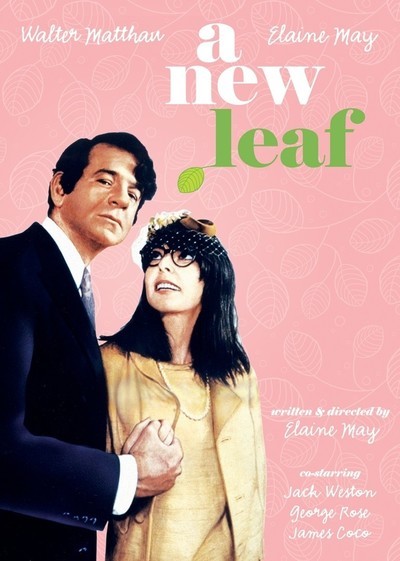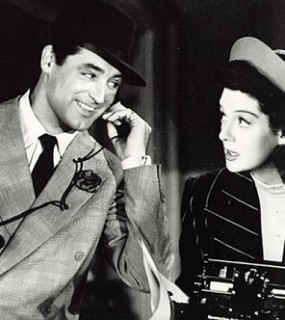“The course of true love never did run smooth” —William Shakespeare
Fear of commitment, jealousy, unrequited love, breakups, and makeups — relationships can sometimes be quite complicated — here are 9 unconventional love stories for Valentine’s Day.
Once (2007)
It takes all of 10 seconds for John Carney’s “Once” to announce itself as something special. A handsome young street musician in Dublin raises his voice in song, then raises it higher with heart-stopping fervor. When a mysteriously endearing young woman stops to interrogate the busker about his music — she turns out to be a musician too — the movie reveals itself as something magical. When they sing their first duet, it’s a song of such transporting passion that you wonder where the drama can possibly go, since they’re obviously made for each other and should instantly leave the screen to live the rest of their lives in private bliss.
The lovers are played by Glen Hansard, the lead singer of the Irish rock group The Frames, and Marketa Irglova, a musician from the Czech Republic. (Amazingly, given her gifts as a singer, pianist and actress, Ms. Irglova was only 17 years old when the movie was shot.) Both performances give new meaning to the timeworn phrase “pitch-perfect,” while both characters do nicely without names; they’re listed in the credits only as the Guy and the Girl. Coy appellations of this sort often serve as warning labels for faux-simple fables that are fatuous or downright cloying, but that’s hardly the case here. “Once” proves to be as smart and funny as it is sweet; it swirls with ambiguity and conflict beneath a simple surface. In all of 88 minutes, Mr. Carney’s singular fable follows its guy and girl through a week of musical and emotional growth that could suffice for a lifetime.
Read the rest of this article at The Wall Street Journal
Punch-Drunk Love (2002)
Barry is socially maladroit, emotionally cross-wired and a little creepy-looking — a loser, in short — and “Punch-Drunk Love” is about the sudden, unsettling eruption of grace, love and self-knowledge into his sad, chaotic life. The harmonium is a portent for the arrival of Lena Leonard (Emily Watson), a shy, whispery woman who works with one of Barry’s seven sisters (Mary Lynn Rajskub) and who elects, against all reason but with sublime decisiveness, to fall in love with Barry.
Of course, the laws of romantic comedy — and Mr. Anderson’s delight in choreographing distress — dictate that the path to love be strewn with obstacles. First of all, there are those seven sisters (played by Ms. Rajskub and six nonprofessionals, four of them real-life blood relations). They subject their brother to a constant stream of teasing, humiliation and betrayal, and they can’t comprehend the tears, the rages and the tremulous, mumbling weirdness that are partly the results of their abuse.
Read the rest of this review at The New York Times
A New Leaf (1971)

Elaine May’s “A New Leaf ” is a love story about these two people, who are in desperate need of each other even if he doesn’t know it. Matthau plays an aging bon vivant who has squandered his fortune and is told by his butler that he has few choices: Suicide, perhaps, or marrying money. He has no ability or ambition, and work of course would be out of the question. He has dedicated his life to living it comfortably and with style. His butler tells him, as he dons his velvet smoking jacket: “You have preserved in your own lifetime sir, a way of life that was dead before you were born.”
Read the rest of the review at Roger Ebert
The Five-Year Engagement (2012)
A lot of terrible romantic comedies come along in a given year, and after five or six you begin to question your belief in anything — romance, comedy, movies, even terribleness itself. Before you know it you’re trying to break the fever and hit bottom, deliberately, with repeated viewings of films co-starring either Katherine Heigl or Gerard Butler or, worse, their near-lethal joint effort, the Yugo of rom-coms: “The Ugly Truth.”
So. When something as sharp and funny as”The Five-Year Engagement”comes along, it means something. I really like this film, loose flaps, protracted finale and all. As in last year’s”Bridesmaids,”an authentic, dimensional human element animates the jokes and the characters with whom we spend a couple of highly satisfying hours.
Read the rest of this review at Chicago Tribune
His Girl Friday (1940)

I’m desperately trying to find a way not to include His Girl Friday because it’s kind of been touted a lot. But it’s my favorite romantic comedy couple on screen. I think Cary Grant and Rosalind Russell in that picture are roughly as great as Beatrice and Benedict in Shakespeare’s Much Ado About Nothing. That’s how great they are. It’s my favorite Cary Grant performance because it combines the leading man side of his persona with this crazy farceur. I just love hearing people talk as fast as most people think. And I love the fact that they condense this three-hour play into whatever the running time is — ninety, ninety-two minutes — and they basically didn’t cut anything; they just got it all in. I adore this film.
Read the rest of this review at Rotten Tomatoes
Amélie (2001)
With Jeunet, you must expect the unexpected. Early in Amélie, a suicide leaps from a building and lands on Amélie’s hapless mother, killing her flat. No wonder Amélie is cautious about life. It doesn’t help that her father, a man obsessed with garden gnomes, has misdiagnosed her with a weak heart. Amélie observes life at a distance, that is, until she finds of box of toys in her apartment and decides to find the owner – now a grown man. The owner is overjoyed and Amélie, watching in secret, begins her life as a mender of broken hearts. Nothing too goody-goody; she also sticks it to the wicked. More crucially, she falls in love with a man, Nino (Mathieu Kassovitz), who haunts photo booths to make art out of the discarded pictures. Nino is Amélie’s kind of guy, though she’s too shy to say hello.
Read the rest of this review at Rolling Stone
Take This Waltz (2011)
When Margot (Michelle Williams), 28, meets Daniel (Luke Kirby), their chemistry is intense and immediate. But Margot suppresses her sudden attraction; she is happily married to Lou (Seth Rogen), a cookbook writer. When Margot learns that Daniel lives across the street from them, the certainty about her domestic life shatters. She and Daniel steal moments throughout the steaming Toronto summer, their eroticism heightened by their restraint. Swelteringly hot, bright and colorful like a bowl of fruit, Take This Waltz leads us, laughing, through the familiar, but uncharted question of what long-term relationships do to love, sex, and our images of ourselves. — (C) Official Site
Like Crazy (2011)
Love is an endlessly renewable resource, yet the fuel’s so seldom used wisely.
The new film “Like Crazy” strives to capture that head-swiveling sensation of falling, and then falling out, and then back in again, as it pertains to the sense-defying, metaphysically boggling realm of time and space known as “your 20s.”
Read the rest of this review at Chicago Tribune
One Day (2011)
“One Day” is a film based on the David Nicholls best-seller about a boy and girl who graduate from the University of Edinburgh on July 15, 1988, and spend the night together. The story follows them by dropping in on July 15th of their lives for year after year, which is a useful device, because it eliminates the need to show us the events of the other days of their years. Success, failure, marriages, divorce, can take place off-screen if necessary. What matters is their accumulating effects.
Read the rest of this review at Roger Ebert
The War of the Roses (1989)
The first and last shots of “The War of the Roses” show us a divorce attorney with a tragic tale to tell. He informs a client that there will be no charge. “I get paid $450 an hour to talk to people,” he says, “and so when I offer to tell you something for free, I advise you to listen carefully.” He wants to tell the story of a couple of clients of his, Oliver and Barbara Rose, who were happy, and then got involved in a divorce, and were never happy again.
Read the rest of this review at Roger Ebert



